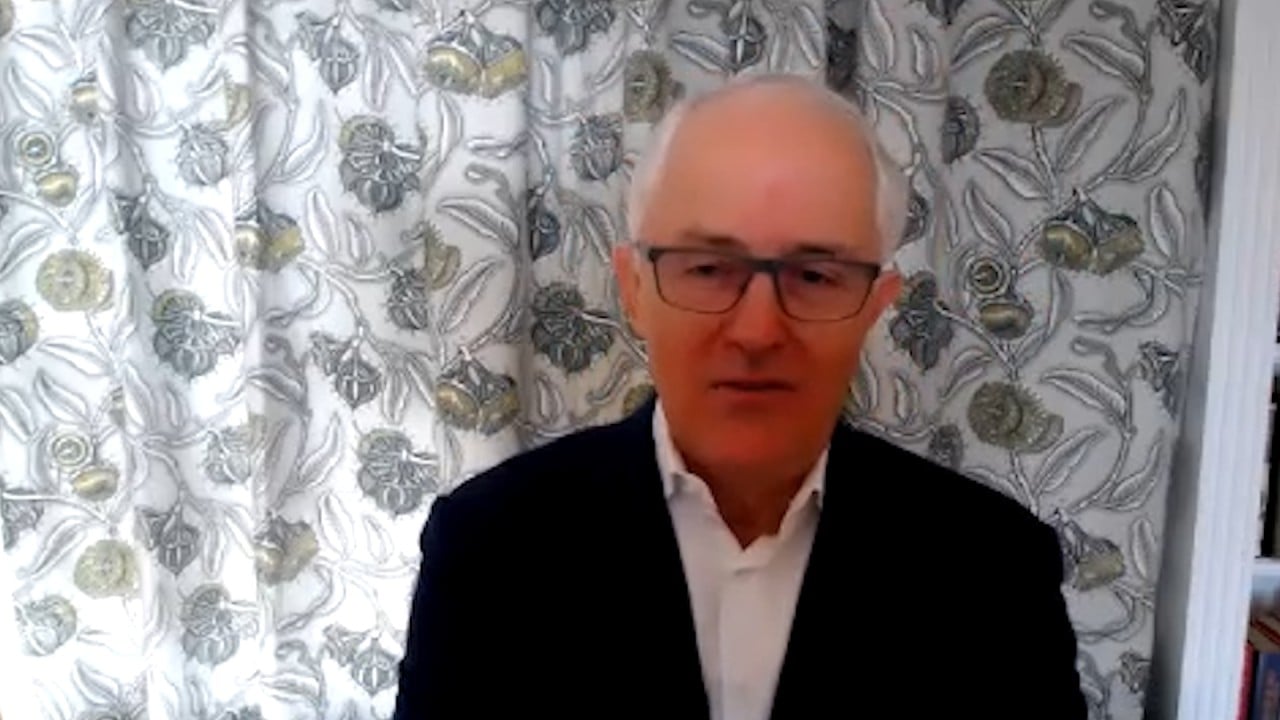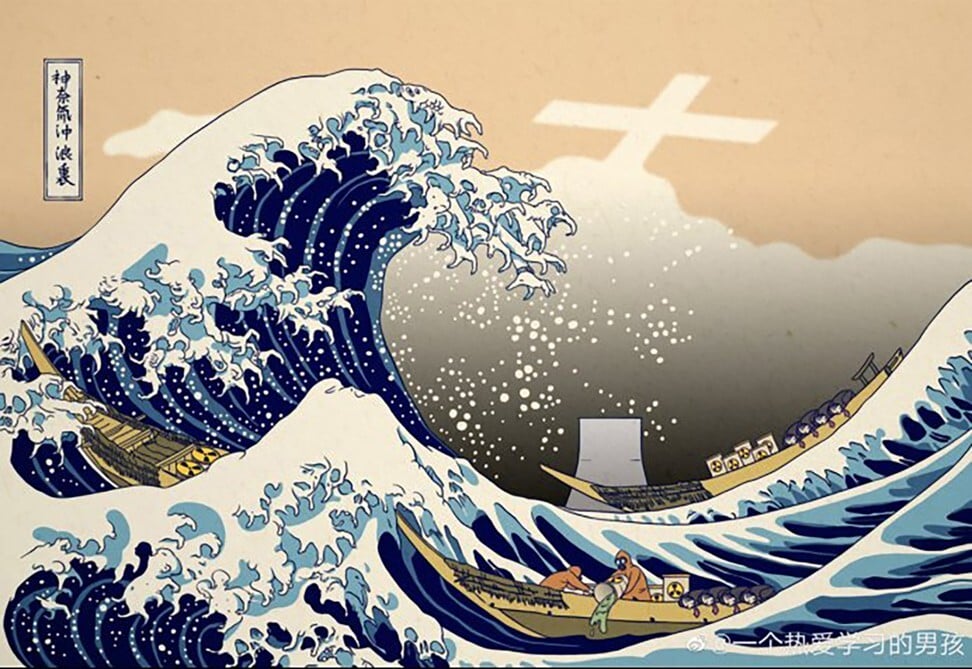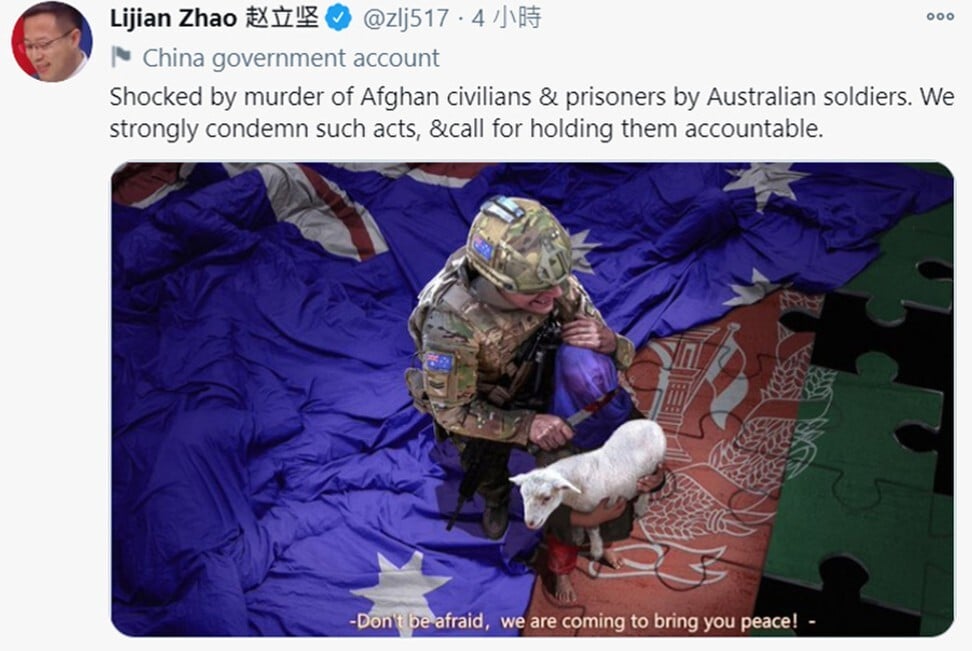
Will China’s jeers cost it the international moral high ground?
- An online attempt to contrast China’s strength in space with India’s pandemic trauma was taken offline after a storm of criticism
- But some say Beijing should stand firmer in projecting its image abroad
One side of the image was of a Chinese rocket launch. The other was a photo of funeral pyres for coronavirus victims in India. Over the top was the title: “China’s fire vs India’s fire”.
The attempt to contrast the success of China’s latest space mission with the humanitarian tragedy across the border in India backfired and was swiftly taken down after criticism at home and abroad for its lack of compassion for people trapped in the trauma of the coronavirus pandemic.
Even though the Changan Jian post was deleted, it revived a debate over how China should show itself to the rest of the world, with some suggesting that Beijing has not been muscular enough in taking on Western narratives.
One of the most divisive figures on China’s diplomatic front lines has been foreign ministry spokesman Zhao Lijian.
Last month, Zhao posted a variation on Hokusai’s “The Great Wave off Kanagawa” on Twitter. The image based on the Japanese print showed nuclear waste being poured into a sea of deformed children.
The image prompted a protest from Tokyo but Zhao responded by pinning the post to the top of his page.
The foreign ministry spokesman was also at the centre of controversy last year when he posted a graphic illustration of an Australian soldier slitting the throat of an Afghan child.
The illustration was the work of Chinese political cartoonist Wuheqilin and again Zhao refused to take the offending post down.
Some members of the establishment have called for China to encourage grass-roots forces like Wuheqilin to take on Western perspectives.
In the March edition of Military Reporters magazine, a monthly publication by the military’s news agency, two researchers from the People’s Liberation Army’s news centre said images could overcome cultural and language barriers between Chinese and Western internet users.
“In the future, China should cultivate and support this new generation of non-governmental forces such as Wuheqilin, so that they can become a new force in spreading Chinese culture, telling Chinese stories, and countering international narratives,” the researchers, Zhou Jie and Li Bo, said.
It is a view supported by Shen Yi, an international relations professor from Fudan University in Shanghai, who openly supported Changan Jian’s post.
On microblogging website Weibo, Shen said China would come in for criticism no matter what it posted.
“Honestly, it’s overly idealistic to think that a post in Weibo can help China stand on the moral high ground, especially when China is confronted with a narrative crisis overseas … We should not limit ourselves that strictly,” he said.
He said China needed to be an “800-pound gorilla” that could “lead the world gently to build a shared destiny for mankind”.
China’s embassy in Paris attacks ‘mad dogs’ and defends Wolf Warriors in public row with French scholar
Shen’s remarks received a wave of support online but not everyone was convinced.
Hu Xijin, editor-in-chief of state tabloid Global Times, said official social media accounts like Changan Jian – which belongs to the party’s Central Political and Legal Affairs Commission – should “hold high the humanitarian flag and show sympathy towards the Indians”.
Ren Yi, a princeling with more than 1.7 million followers on Weibo, also said the social media post was not appropriate.
“China is a vast country where there are all kinds of opinions, from realist to cynical,” Ren said. “However, some topics can never be joked about, including disasters, disease, pain, life and death … as these cross the boundaries of history and society, and can echo in all human groups irrespective of background.”

00:59
China's ‘wolf warrior’ diplomacy counterproductive, says former Australian PM Turnbull
Florian Schneider, director of the Leiden Asia Centre in the Netherlands, said much of the debate about China’s handling of these kinds of issues was linked to whether people thought the country needed to make friends in the global community.
“There is a lot of anxiety about China’s role in the world today, both outside and inside [China], and when discussions turn to these contested issues, we see tempers boiling over in ways that are often decidedly undiplomatic,” Schneider said.
Another factor might be the pandemic, which had interrupted normal in-person communication and led to growing distrust, according to Wu Fei, professor of journalism and communication at Jinan University in Guangzhou.
Whatever the causes, the end results might not serve Beijing’s interests, observers say.
“This approach is counterproductive to serving Beijing’s foreign interests … This kind of Wolf Warrior style alienates foreign governments and citizens and seems to be linked with foreigners’ reduced trust in the Chinese government,” said Jonathan Hassid, an associate professor at Iowa State University studying Chinese news media.
“Rhetorical bullying is also ineffective at pressuring foreign governments to act in Beijing’s interests, and may even be encouraging the targets of this rhetoric to challenge Chinese regional dominance.”
Hong Kong’s pro-Beijing politicians turn into ‘wolf warriors’ on Twitter, defending China against criticism
Srikanth Kondapalli, a professor of Chinese studies and chairman of the Centre for East Asian Studies at Jawaharlal Nehru University, also saw problems in a rising China using a negative strategy.
“Belittling any country in a health crisis does not solve any nation’s interests … In fact, this approach will boomerang on China with more calls for comprehensive investigation into the origins of the virus,” he said.
“China’s actions in the media would further lead to its soft power decline in India.”
But Schneider noted that other countries had also taken a provocative approach
Earlier this month, Philippine Foreign Secretary Teddy Locsin called China an “ugly oaf” and used the F-word in tweet as he demanded the withdrawal of Chinese vessels near the Scarborough Shoal, a post that he apologised for later.
Philippine election: will China and Whitsun Reef dispute loom large?
Schneider said the Trump presidency had been a catalyst for widespread bad behaviour.
“My sense is that public discourse everywhere has become cruder, in part due to the way people treat each other in social media contexts, but also in part because of an increase in polarisation, populism, and nationalism around the world,” he said.




